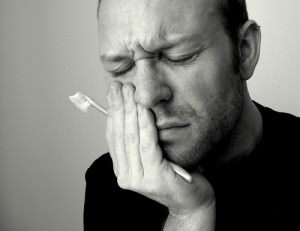Bruxism, more commonly referred to as teeth grinding is a kind of parasomnia in which a person clenches or grinds their teeth in sleep. Teeth grinding is not a problem is it occurs irregularly or for a few minutes during the day when you are nervous. If teeth grinding occurs regularly during the deepness of your sleep as well as your oral health is affected.
Teeth Grinding: Diagnosing
Just like most other sleep disorders, the person is not aware that they are teeth grinding. Most people only know of these problems when they are told by their bed partners. It is difficult to know of this condition unless you are well informed about it. About 8% of adults grind their teeth at night while 1/3 of parents report that their child/children have symptoms of bruxism.
Teeth grinding strains the muscles of the face causing headaches that are difficult to explain. Another classic symptom is a sore jaw with no associated dental problems. You dentist can be able to examine your teeth and confirm teeth gri

- Pain on the face.
- Damaged teeth due to friction.
- Jaw joint pain.
- Pain in the ear.
- Difficulty in chewing food and swallowing.
Teeth Grinding: Causes
The actual causes and mechanism of teeth grinding is not well know. However, there are some conditions seen among teeth grinders and are though to contribute if not cause it:
Stress is thought to be the most common cause of sleep bruxism. Your sleep cycle is disrupted when you are stressed. To cope with this disruption is sleep pattern; you grind your teeth during sleep.
Anger causes people to clench their teeth during the day. There is evidence that unsolved anger can cause you to clench your teeth during sleep. Dealing with the wrath of anger goes a long way in curing bruxism.
People who have an aggressive character are more likely to experience teeth grinding. Such people are often not able to let out their feelings instead they suppress it. Teeth clenching is the body’s way of telling aggressive people that they need to release emotions.
Malocclusion is a medical condition in which the upper and lower sets of teeth are not aligned. In an attempt to get close to the other set of teeth, teeth will grind. Malocclusion is thought to be one of the few physical causes of teeth grinding.
Children below the age of 7 still have their teeth growing. The process of teeth development which occurs optimally at night causes an itchy feeling in the gums resulting in bruxism. In this case grinding teeth is a response to itchiness and usually cures with time. Other causes of bruxism include:
- Diseases of the nerves such as Parkinson’s and Huntington’s.
- Side effect of medical drugs.
Teeth Grinding: Treatments
As you can see, most of the causes of the teeth grinding are psychological. Therefore, one of the best ways to treat the condition is to get rid of the related psychological problem. In the mean time, your dentist may prescribe an appliance which you put on your teeth to protect their surfaces from grinding. Some cases of bruxism can be treated by learning jaw-aligning exercises. No one should suffer with this since something can be done about it.
Teeth Grinding Video Education
:
